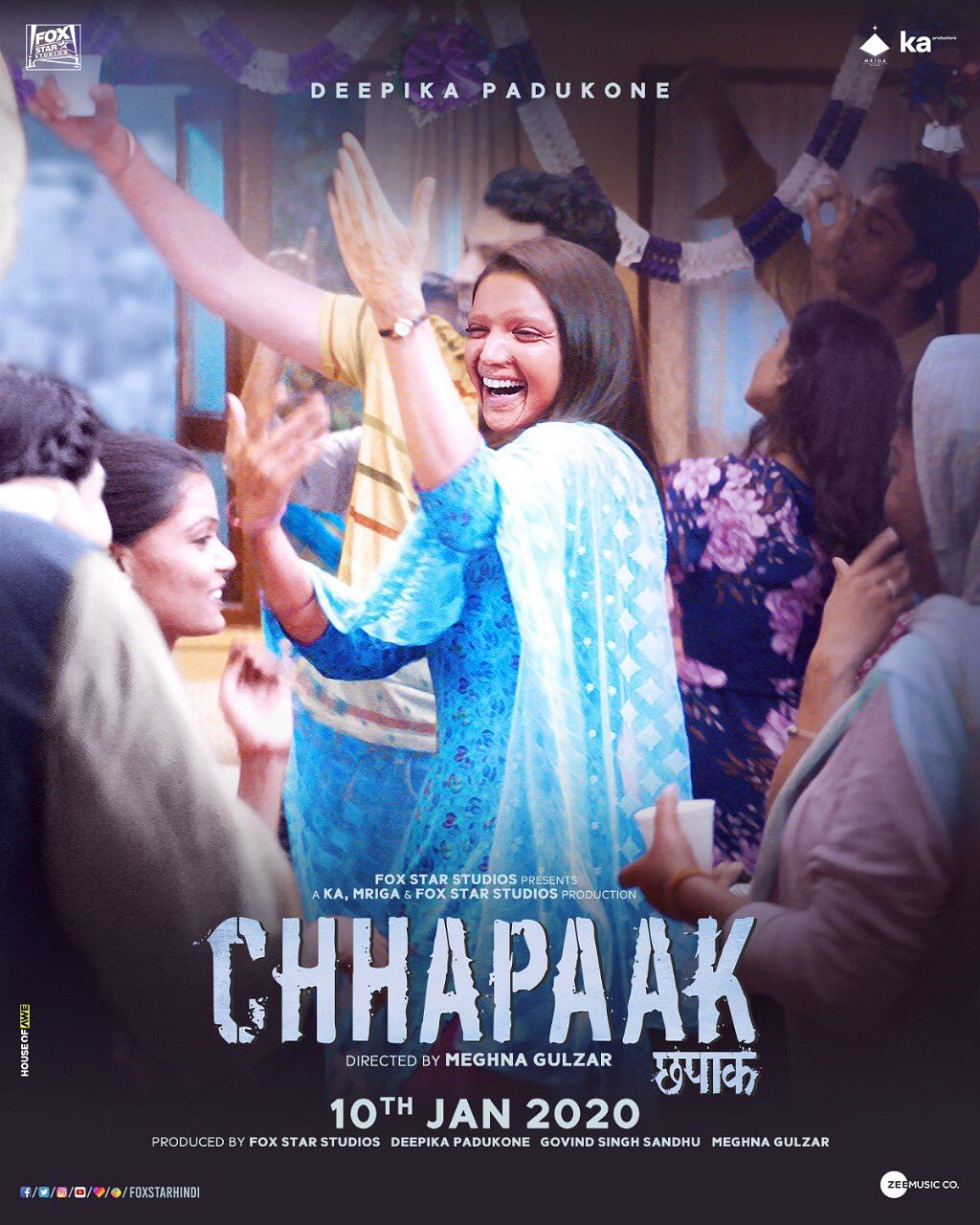
If you have ever felt excruciating physical pain in your life, then you’re bound to relate to the piercing cries of Malti in Meghna Gulzar’s Chhapaak. And these cries stay with you after the film ends, pointing a finger towards the larger issues in society that create and sustain gruesome incidents like acid attacks.
Wedding nuanced social messaging with excellent cinematic storytelling, the film sets out to demystify these attacks as acts that lead to a sudden (chhapaak) erasure of a woman’s identity. The story follows the journey of Malti, an acid attack survivor, from a victim to a role model. As an adolescent student in a government secondary school with aspirations to be the next Indian Idol, Malti’s story shows how the casual display of care by an older family friend, Bashir Khan, makes her vulnerable to his voyeuristic instincts. Her refusal to marry him leads him to seek revenge by throwing acid on her face in broad daylight.
What makes Chhapaak a winner is that it brings to the fore how these barbaric attacks are not peculiar acts of demonic criminals but rather a product of our social structures. It shows how institutional and systemic problems like police apathy, unregulated sale of acid and lack of public sensitisation are larger products of patriarchal structures. It is also a stinging critique of toxic masculinity that escalates from voyeurism and harassment to ultimately manifest as heinous violence.
All along, you are aware of the vulnerability of young women who are bereft of empathetic family support when they battle everyday misogyny, taboos around association with men and shaming from their own. While highlighting the perils of a lack of comprehensive sexuality education and socio-psychological support service for adolescents, it highlights how women bear indignity for just going about their normal lives. It helps you appreciate that the ignominy of acid attacks demands radical societal transformation.
That said, the film itself works in conveying the larger reality because of director Meghna Gulzar’s decision to remain true to the cinematic imperative. The film’s impact is heightened by the precision with which details have been taken care of. Malti’s prosthetics, for example, keep changing as they would medically in real life, and that’s why the character slowly grows on the viewer. Meghana Gulzar has also cleverly leveraged the song Chhapaak in the most defining scenes of the film to drive viewer experience and emotion and make it a lasting one. Most of the intense drama of the film is due to this song.
The film is brilliant when it comes to providing insights into the life of acid attack survivors, portraying their vulnerability no matter how much time has passed or how many successes they have achieved post the attack. It also recognises the role that lawyers and the NGO support system play in the remediary process, but always keeping an eye on the social narrative that emerges from this interaction. So, the story brilliantly explores the fault lines between the survivor’s real-life struggles and their allies’ and advocates’ moral crusade.
While the movie furthers the public outrage over the kafkaesque criminal justice system, two-stage appeals and archaic colonial laws, it fails to avoid the pitfalls of the populist criminalisation narrative. The argument for reasonably strict penalty notwithstanding, the film plays up the retributive aspect of seeking closure through higher sentences, quick punishments and no bails while glossing over the principles of rule of law that have the rights of the accused as well as convicts at its core.
But all in all, Chhapaak is a rare example of a cinematic narrative that does not convey a fixed meaning on a range of complex socio-legal questions of patriarchal violence, criminal justice and rehabilitation. As against many other films on socio-legal themes, such as Nikhil Advani’s Batla House and Ajay Bahl’s Section 375, this film engages the audience in a critical dialogue that these complex themes deserve. All in all, Chhapaak leaves you wanting to see more such sensitively-made films based on sensitive and crucial social issues.
(Bhavya Arora is a student of Hansraj College, Delhi University and Prannv Dhawan studies at NLSIU, Bengaluru)
Disclaimer: The views expressed above are the author’s own. They do not necessarily reflect the views of DH.